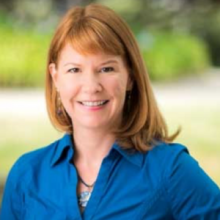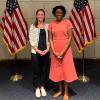
The Health Policy Reforms Being Led by UCSF Experts
From investing in nurses in the global fight against tuberculosis, to launching a first-of-its-kind statewide initiative to improve access to abortion care and training, these are just some of the key areas in which UCSF School of Nursing experts are influencing health policy at the state, national and international levels.
To End Tuberculosis, Invest in the Nursing Workforce
Although tuberculosis (TB) is preventable and curable, it is the second leading infectious killer in the world — right behind COVID-19. Of the 10.6 million people infected with TB in 2022, 1.3 million died.
Jerry John Nutor, PhD, RN, FAAN, assistant professor, is advancing policies to improve TB prevention and treatment globally. At the United Nations General Assembly in September, Nutor delivered a speech on behalf of Sigma Theta Tau International Honor Society of Nursing during a high-level meeting on the fight against TB.
Nutor urged U.N. member states, especially low- and middle-income countries, to strengthen their health systems to fight the disease and to invest in nurses to ensure an adequate number of well-educated health care professionals.
“Nurses are the largest clinical providers of TB care globally,” says Nutor. “Investing in nurses is a step to ensuring quality, person-centered care of people with TB and prevention of new TB cases which will accelerate the U.N.’s pledge to end TB by 2030.”
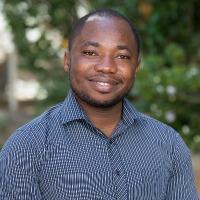
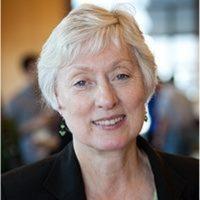
Ensuring Adequate Staffing in Nursing Homes
“Adequate nurse staffing levels are essential to protect the health and safety of nursing home residents,” says Charlene Harrington, PhD, RN, FAAN, professor emerita. “The higher the staffing levels, the better the resident outcomes.”
Harrington, a national leader in nursing home policy reform, is advocating to change the newly proposed federal minimum nursing home staff requirements.
The proposal establishes minimum staffing standards to ensure nursing home residents receive basic care and services. But Harrington says the proposal is “dangerously inadequate” because it fails to require the necessary number of staff to provide quality care, and it offers a waiver which will allow some nursing homes to apply for exception.
Harrington recommends the waiver be eliminated and the minimum staffing standard be increased so residents receive more dedicated staff time each day.
To Beat Cancer, Help People Quit Smoking
The White House’s Cancer Moonshot Initiative is a national effort to end cancer in the United States. Professor Valerie Yerger, ND, is working with the initiative to end smoking — the country’s No. 1 driver of cancer deaths.
The African American Tobacco Control Leadership Council — of which Yerger is a founding member — is partnering with the UCSF Smoking Cessation Leadership Center to launch a smoking cessation campaign to promote a free mobile application based on Emotional Brain Training (EBT).
“Under today’s extreme stress, fight-or-flight circuits in the emotional brain trigger biochemical drives to smoke,” says Yerger. EBT’s proven, scientific tools empower people to switch off toxic stress chemicals and are effective in treating stress, mood and addictive behaviors like smoking.
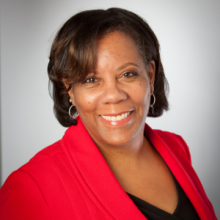
The “Spiral Up Lite” mobile application will be disseminated nationwide through a diverse network of potential users. “We will promote the application to individuals who smoke, especially those within racially and ethnically diverse and lower-income groups who are disproportionately burdened by commercial tobacco and predatorily targeted by the tobacco industry,” explains Yerger.
Abortion Training Experts Launch California’s Reproductive Health Services Corps
Backed by a historic $18 million investment from the state of California, a consortium including UCSF School of Nursing sexual and reproductive health leaders is launching a first-of-its-kind, statewide initiative to improve access to abortion care and training, and to diversify the state’s reproductive health workforce.
Forty percent of California’s counties lack an abortion provider, and providers are reporting a significant increase in patients traveling to California from states where abortion is no longer available.
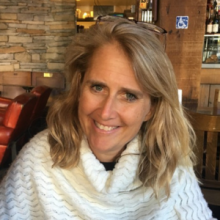
California’s new Reproductive Health Services Corps (RHSC) will address these challenges by recruiting, training and retaining a diverse reproductive health workforce to work in underserved areas of the state. The program is unique in that it offers full-spectrum reproductive health training to all members of the care team.
California RHSC is the result of AB 1918, a bill that originated from a recommendation by nurse-midwife Bethany Golden, MS, RN, CNM, who is pursuing her doctorate at the school. Golden joined the California Future of Abortion Council, which formalized the recommendation. She developed the bill with its sponsor, Training in Early Abortion for Comprehensive Healthcare, and its author, California assemblymember Cottie Petri-Norris.
Preparing a Health Care Workforce Ready to Meet the Needs of An Aging Population
It’s estimated that 21% of the U.S. population will be age 65 or older by 2030. Is our health care workforce prepared to meet the growing long-term needs of the country’s aging population?
The UCSF Health Workforce Research Center on Long-Term Care (UCSF HWRC) seeks to answer that question.
Led by Joanne Spetz, PhD, professor, an internationally recognized nursing workforce expert, the center leads policy-oriented research to address the need for expanded long-term care services for aging Americans and those with disabilities — both at home and in the community.
“We examine the health care workforce and help shape policies that will contribute to improving access to long-term care services, improve the quality and patient-centeredness of long-term care and support attainment of high-value health care in all places long-term care is provided,” says Spetz.
Data from UCSF HWRC are regularly shared with state and federal agencies and policy leaders to inform workforce policy development.
